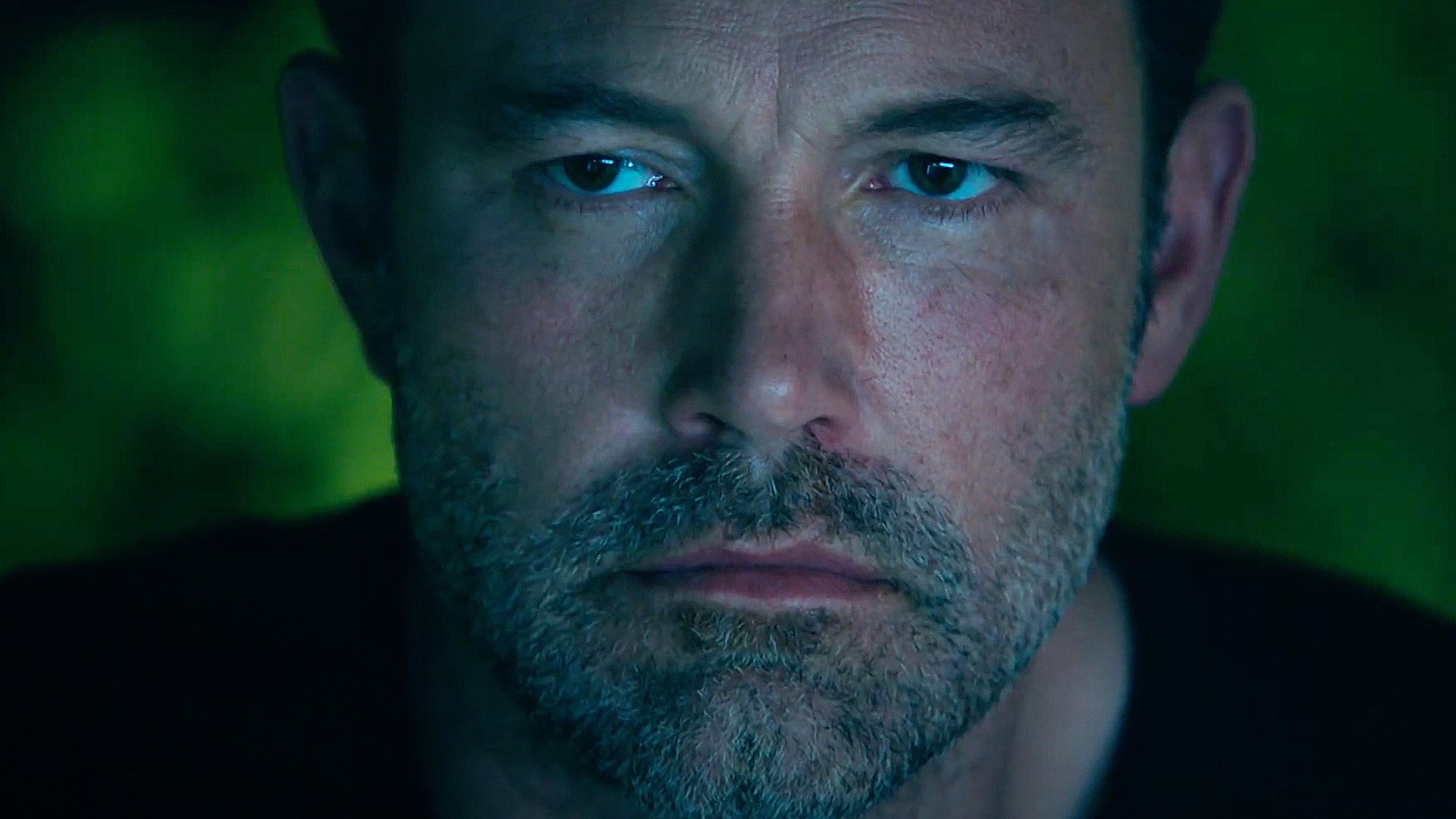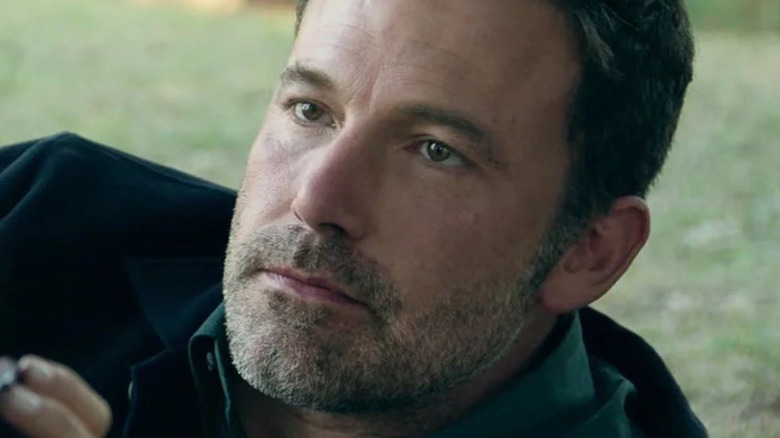The ending of Deep Water leaves viewers with lingering questions about the fate of Vic and Melinda’s troubled relationship. Directed by Adrian Lyne, known for his work on Fatal Attraction and Indecent Proposal, Deep Water delves into the psychological and moral complexities of a marriage marked by manipulation, passion, and deadly games. Adapted from Patricia Highsmith’s 1957 novel, the film updates the story with a new twist, making it a haunting exploration of love, power, and violence.
The story is centered around Vic (Ben Affleck) and Melinda Van Allen (Ana de Armas), a married couple living in a small, tight-knit community. They raise their six-year-old daughter, Trixie, in a setting where gossip spreads like wildfire. Vic, who seems to lack the passion his wife craves, agrees to a peculiar arrangement: Melinda can have lovers, as long as it doesn’t disrupt their family life. What begins as a seemingly harmless pact soon spirals into something far darker, as the couple’s agreement becomes a vehicle for both jealousy and violence.
As the film progresses, the manipulation between the two becomes more intense. Vic starts to unravel emotionally, and by the end, several people connected to Melinda’s lovers meet untimely deaths. Vic, now completely unhinged, kills two of Melinda’s lovers, Charlie and Tony, but instead of pushing her away, these murders appear to ignite a new passion in their marriage. The film culminates with a conclusion, where the couple, bound by their toxic love, are more connected than ever.

Deep Water Ending Explained
At the film’s conclusion, despite the murders that have occurred, Vic and Melinda’s bond is strangely reaffirmed. Melinda, despite suspecting that Vic killed her lover, Charlie, does not confront him. Instead, she seems oddly drawn to him, suggesting a deeper connection that is forged through violence and control. Vic’s act of murder, rather than driving a wedge between them, seems to have reignited a passion she had long been seeking in their stagnant marriage. Even when she finds evidence of Tony’s death, she doesn’t immediately accuse Vic, hinting at her growing acceptance of his extreme measures as an expression of love.
The final sequence shows Melinda discovering Tony’s wallet, hidden within Vic’s snails. She makes a call to their neighbor, Don, who has grown suspicious of Vic, and decides to confront him. However, when Vic stops Don from contacting the police, Don swerves off the road and dies in a car crash. This event further cements the dark and twisted dynamics between Vic and Melinda, as the deaths of multiple lovers are somehow integrated into their family life without real consequence.
Trixie’s Astute Observation of Her Parents’ Actions
Trixie, Vic and Melinda’s young daughter, plays a pivotal role in the story’s final moments. Though only six years old, she appears to be far more perceptive than her parents give her credit for. Trixie’s observation that her father likely killed Charlie adds an unsettling layer to the narrative. When she throws Melinda’s suitcase into the pool, telling her they are not leaving, it’s clear that Trixie understands the dynamics of her parents’ relationship on a deeper level. Her actions, while innocent on the surface, suggest that she is not disturbed by the violence surrounding her but rather, seems to accept it as part of her family’s dysfunction.
Despite her young age, Trixie’s bond with her father appears stronger than her connection to her mother. This dynamic hints at Trixie’s understanding of the underlying truth in her family’s toxic relationship, and her actions underscore the unsettling reality that the family is far from typical.
Melinda’s Complicity and the Reaffirmation of Family
Throughout Deep Water, Melinda is portrayed as an enigmatic character, seemingly indifferent to the consequences of her affairs. However, as the story unfolds, her behavior takes a darker turn. After Trixie’s emotional outburst, Melinda’s feelings toward Vic shift, and she starts to view his violent actions as a twisted form of devotion. In the film’s final moments, Melinda burns Tony’s identification documents, a clear indication that she is willing to cover up his murder to keep the family intact.
This shift in Melinda’s behavior is significant. Her acknowledgment that Vic’s violence is an expression of his passion redefines their relationship. She begins to understand that, in his own disturbed way, Vic has been trying to show love. Her decision to help him hide Tony’s death marks a pivotal moment in their relationship. In helping Vic, Melinda reaffirms her commitment to the family, signaling that she no longer views his actions as mere aberrations, but as a means of securing their bond.

A Disturbing Return to Normalcy
By the end of Deep Water, Vic and Melinda’s relationship appears to have been solidified through a series of violent and manipulative acts. The couple returns to their roles as a picture-perfect suburban family, their dark secrets hidden behind the facade of normalcy. Despite the murders and lies, the couple seems to be more passionately connected than ever, and it remains unclear whether they will continue their dangerous games or if the violence will escalate even further.
In a chilling closing moment, Trixie sings “You Make Me Feel Like Dancing,” a song that, while innocent in appearance, serves as an eerie backdrop to the disturbing nature of the family dynamic. The song, a symbol of total devotion, encapsulates the twisted love between Vic, Melinda, and Trixie. Rather than recoiling from the violence and infidelity that have marked their lives, Trixie embraces the dysfunction, revealing a disturbing level of acceptance of her parent’s actions.
The Significance of the Ending
The ending of Deep Water is a complex commentary on the lengths some couples are willing to go to maintain the illusion of a perfect marriage. At its core, the film highlights the dangers of emotional detachment, infidelity, and the masks people wear to hide their true selves. Vic and Melinda’s complicit behavior—his murders and her infidelity—underscore the idea that the lines between love and obsession, passion and violence, are dangerously blurred.
Throughout the film, Vic’s seemingly indifferent demeanor conceals a bubbling anger that ultimately erupts in murder. His actions are driven by jealousy and frustration, yet he rationalizes them as necessary to restore the passion in his marriage. Similarly, Melinda’s willingness to turn a blind eye to her husband’s crimes reveals her own desire for excitement and validation. Together, they create a toxic, co-dependent bond that is both destructive and oddly fulfilling.
Comparing Deep Water’s Ending to the Book
While the film adaptation of Deep Water offers a unique and disturbing twist on the original story, the book by Patricia Highsmith presents a much darker ending. In the novel, Vic does not receive the same level of emotional fulfillment from his violent acts, and Melinda does not help him cover up his crimes. Instead, the book concludes with Vic killing Melinda in a final act of desperation. This stark contrast highlights the differences between the two versions of the story, with the film offering a more complex and disturbing resolution to the couple’s troubled marriage.

Adrian Lyne’s Signature Style
Director Adrian Lyne is renowned for his films about twisted relationships, where infidelity and violence intersect. His films often explore the unraveling of couples as they descend into madness, and Deep Water is no exception. However, while the film shares many thematic elements with Lyne’s previous works, such as Fatal Attraction and Unfaithful, it also deviates in its portrayal of the central couple. In Deep Water, the violence and manipulation between Vic and Melinda don’t lead to an inevitable downfall, but rather serve to deepen their connection, making their marriage even more dangerous and intense.
Audience Reception of the Ending
The ending of Deep Water received mixed reactions, with many viewers expressing dissatisfaction with the lack of a clear resolution or comeuppance for the characters. Some critics felt that the film’s buildup didn’t pay off, leaving the ending feeling anticlimactic. Others, however, appreciated the unsettling nature of the conclusion, seeing it as a deliberate choice to leave the characters in moral ambiguity. The absence of a definitive resolution echoes the themes of the film—love, obsession, and violence—and highlights the cyclical nature of Vic and Melinda’s toxic relationship.
Deep Water presents a haunting exploration of a marriage gone awry. The ending reveals the complex and dangerous nature of Vic and Melinda’s bond, showing that, despite the violence and manipulation, their relationship continues to thrive in its twisted way. This final moment, coupled with the eerie soundtrack, leaves viewers questioning the lengths people will go to maintain love—no matter how dark it becomes.





